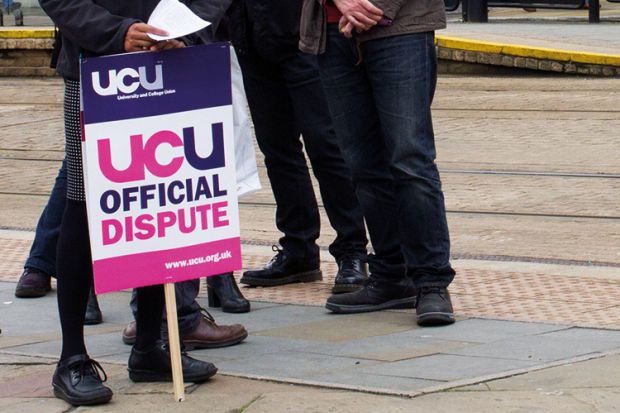Universities have dismissed the “summer of strike action” as entirely ineffective as plans for further strike action were suspended until at least October.
More than 120 University and College Union branches have so far taken part in one-day strikes targeting open days or graduation ceremonies over what the union has called an “insulting” 1.1 per cent offer of a pay rise for 2016-17.
However, universities remain unmoved by the calls for an improved pay deal, claiming that none of the strikes has had any noticeable effect on institutions.
“[The] UCU’s attempt to call on its members to take a summer of strike action...has had no impact on graduation ceremonies, open days or examination boards,” said a Universities and Colleges Employers Association spokesman, who added that “students and potential students have not been affected”.
The body, which represents universities in pay talks with trade unions, claimed turnout for the isolated strikes was much lower than the 14 per cent of UCU members who supported a two-day national strike in mid-May.
However, Paul Bridge, head of higher education at UCU, said the action had been "well supported" and "part of a long-term strategy to highlight the unfairness over not just pay, but also the gender pay gap in higher education and the sector’s widespread reliance on casual contracts. Ucea should forget the spin and focus on negotiating a sensible solution to these issues which blight the sector.”
Gregor Gall, professor of industrial relations at the University of Bradford, believed the tactic of holding “isolated one-day strikes” through June and July was always unlikely to exert enough pressure on employers to force an improved offer.
“Such rolling regional strikes – sometimes called ‘smart strikes’ – spread the pain across the membership of the sacrifice of lost wages…but they do not pack the punch that national strikes do,” said Professor Gall.
“It is surprising that the UCU has not reverted to what has demonstrably been shown to work in previous years, namely, targeting the key pressure of the year...exams,” he added.
The UCU has confirmed that it will consult members about the possibility of a potential assessment boycott in the autumn, while its call for external examiners to consider avoiding volunteering for these crucial posts would continue, it said.
However, resuming the dispute in October – when a marking boycott may be effective – may mean the dispute has “lost momentum”, with many more likely to accept the “tiny increase on the first offer” of 1 per cent, Professor Gall said.
Increased uncertainty caused by last month’s European Union referendum result would also be a factor in staff decisions, Ucea predicted.
“We believe that the vast majority of staff would sooner see their pay uplifted in August than see the UCU call for action in the autumn that could damage their students, their jobs and their institutions,” a spokesman added.
Mr Bridge said that the union was calling on universities to write to Ucea over the summer to “recommend they come back to us with a decent pay offer and meaningful proposals to address gender pay inequality and widespread casualisation that can actually be put to members, and work to resolve the dispute”.
Register to continue
Why register?
- Registration is free and only takes a moment
- Once registered, you can read 3 articles a month
- Sign up for our newsletter
Subscribe
Or subscribe for unlimited access to:
- Unlimited access to news, views, insights & reviews
- Digital editions
- Digital access to THE’s university and college rankings analysis
Already registered or a current subscriber?






